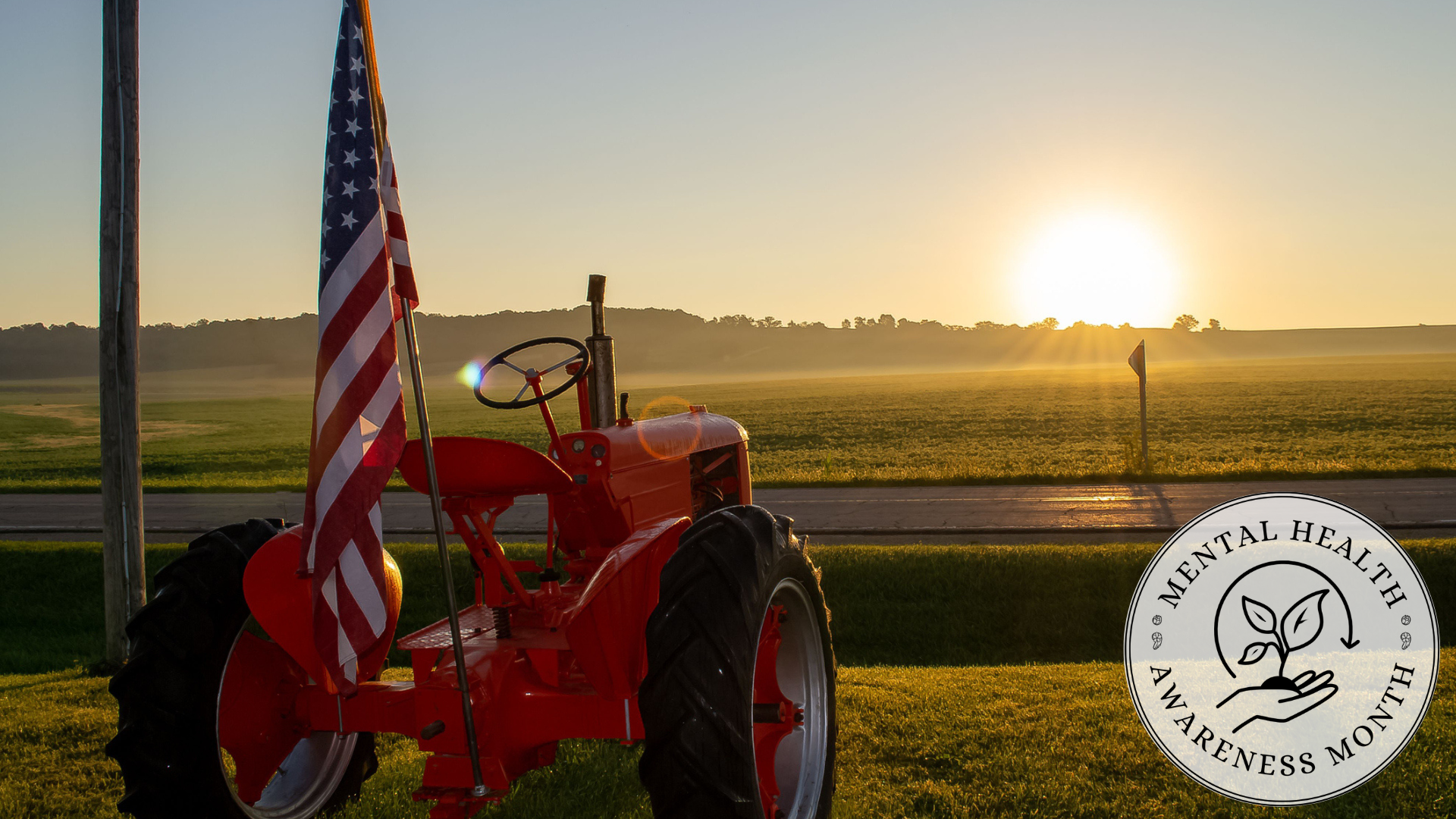Brian Brett is credited with writing, “Farming is a profession of hope.”
It is one of my favorite reminders about the life I pursue. As National Mental Health Month comes to a close, it seems fitting to share a glimpse from my home office window. My bio notes I am a fourth-generation farmer in Eastern Washington who works in public policy advocating for farmers and ranchers.
It is a balancing act to do my jobs. No two days are ever the same except for the shoe and clothing changes and the need to carry more than one phone all the time. The pressure I observe on our farm and on the farms and ranches of our friends and neighbors is immense. It is what makes this month such an important one to me.
When we first started raising alfalfa, my husband worked with another grower. He was awake for 72 hours running; rolling windrows in the mornings, checking fields midday, and baling at night. On the third day, he sat down on our sofa and inadvertently fell asleep sitting up. I knew he needed to be back on the tractor in less than two hours, but I also knew he’d been awake for three days. So, I let him rest and packed him food to take with him when I woke him with just enough time to be back to work.
Our farm is small in acres and people. It is that way for a lot of reasons including regulations and costs. The notion of “get big or get out,” doesn’t always work in the present economy or for every production model. These pressures are not discussed by farmers and ranchers with anyone outside of agriculture. Why? Because farmers and ranchers believe they are not understood by the non-farming public.
I have written and published columns in publications like The Seattle Times about being a farmer in our state.
And I have read the comments left by readers of those columns. Some comments have been genuinely kind. Others have been less so:
“You didn’t mention farm subsidies.”
“But those ag property tax reductions are sweet.”
“At least the whine industry appears healthy.”
“Bill Gates is the biggest farmer in America.”
I am also a professional writer and have developed a pretty thick skin regarding other peoples’ opinions about my work and thoughts. However, most people are not accustomed to having total strangers pick apart their very existence.
In answer to those commentors, my husband and I have never received a subsidy payment for our crops nor are we eligible for property tax reductions because we rent all the land we farm. Contrary to popular belief (and despite my best efforts to educate people otherwise), Bill Gates is not the largest landowner/farmer in the United States. Mr. Gates doesn’t even crack the Top 10. But thank you all for reading.
Every part of the population in our state has been supported in its quest for recognition. It is time that farmers and ranchers were, too. I mentioned to a colleague recently that agriculture is the thing everyone takes for granted; no one thinks much of the food on their plates until it is not there. Even with my confirmation bias and limited scope of observation, I can see the unique challenges faced by farmers and ranchers. More specifically, I can see the need for mental health support responses geared toward their language and life; counselors who are familiar with farm nomenclature, the seasonal nature of the work, the types of farming done in our state, and the stressors specific to this region. There is no “one size fits most/all” when it comes to any farm or ranch.
Ultimately, the mental health of our farm community is a food security concern. Our farmers and ranchers, our farmworkers and truckers, our warehouse workers and pickers, and everyone else along the agricultural supply chain should have someone to talk to who can relate to what they are experiencing every day. There should be no hesitation, budget barrier, or question about why farmers and ranchers are different from the public or need different mental health support than another segment of the population. When we can achieve that level of support and understanding for our food producers, then we will have provided the undergirding for the hope Brian Brett’s statement suggests.




